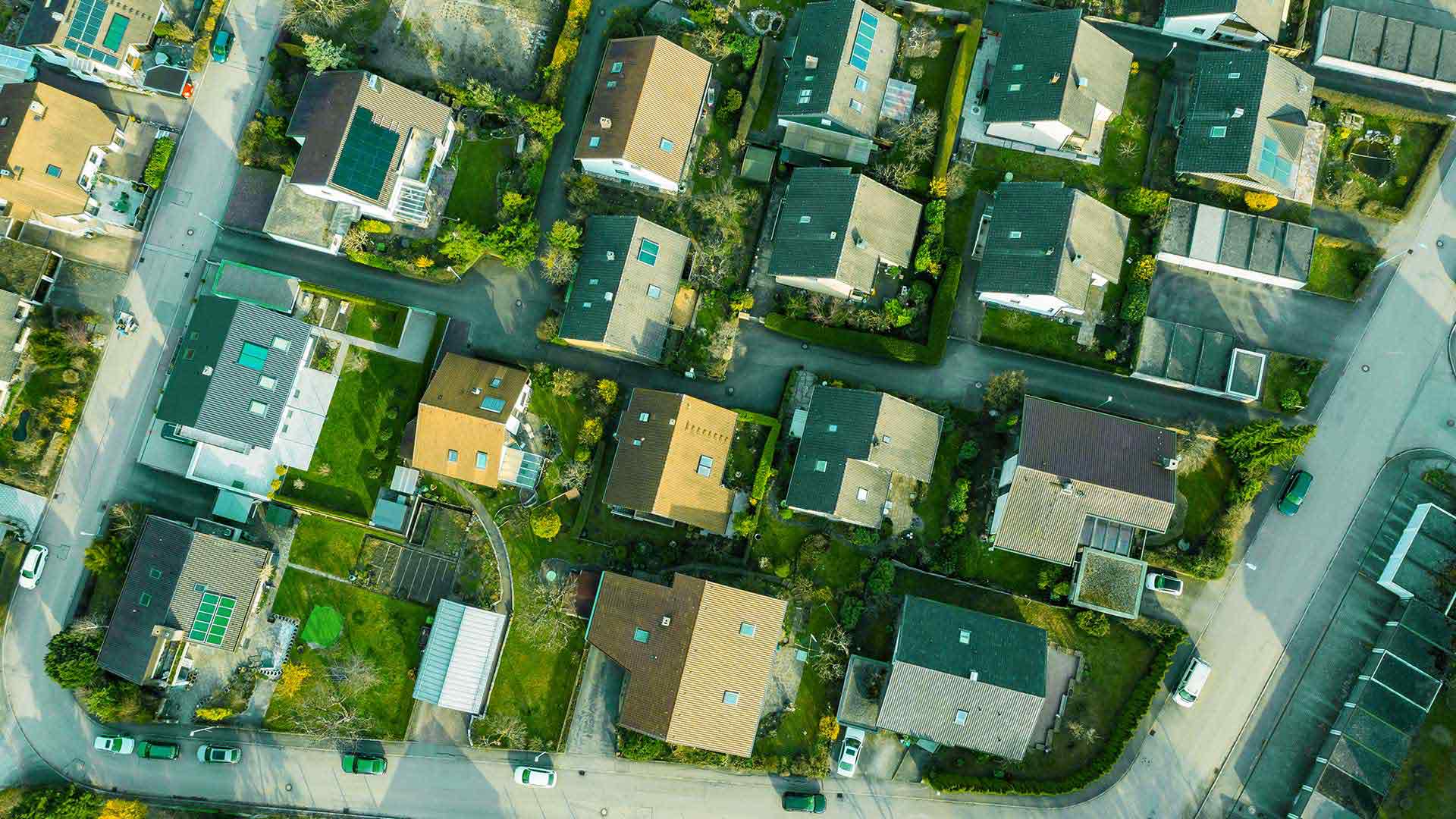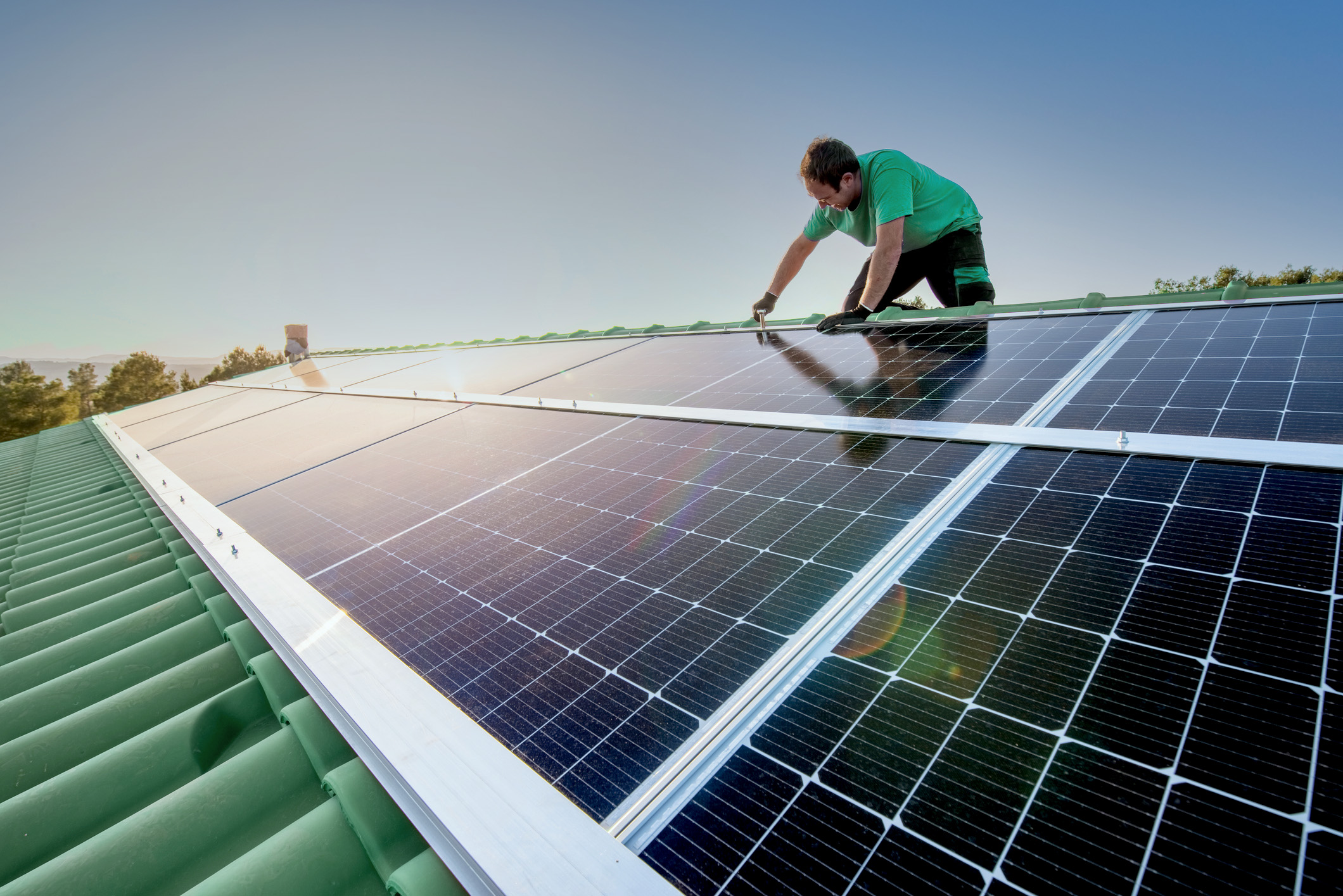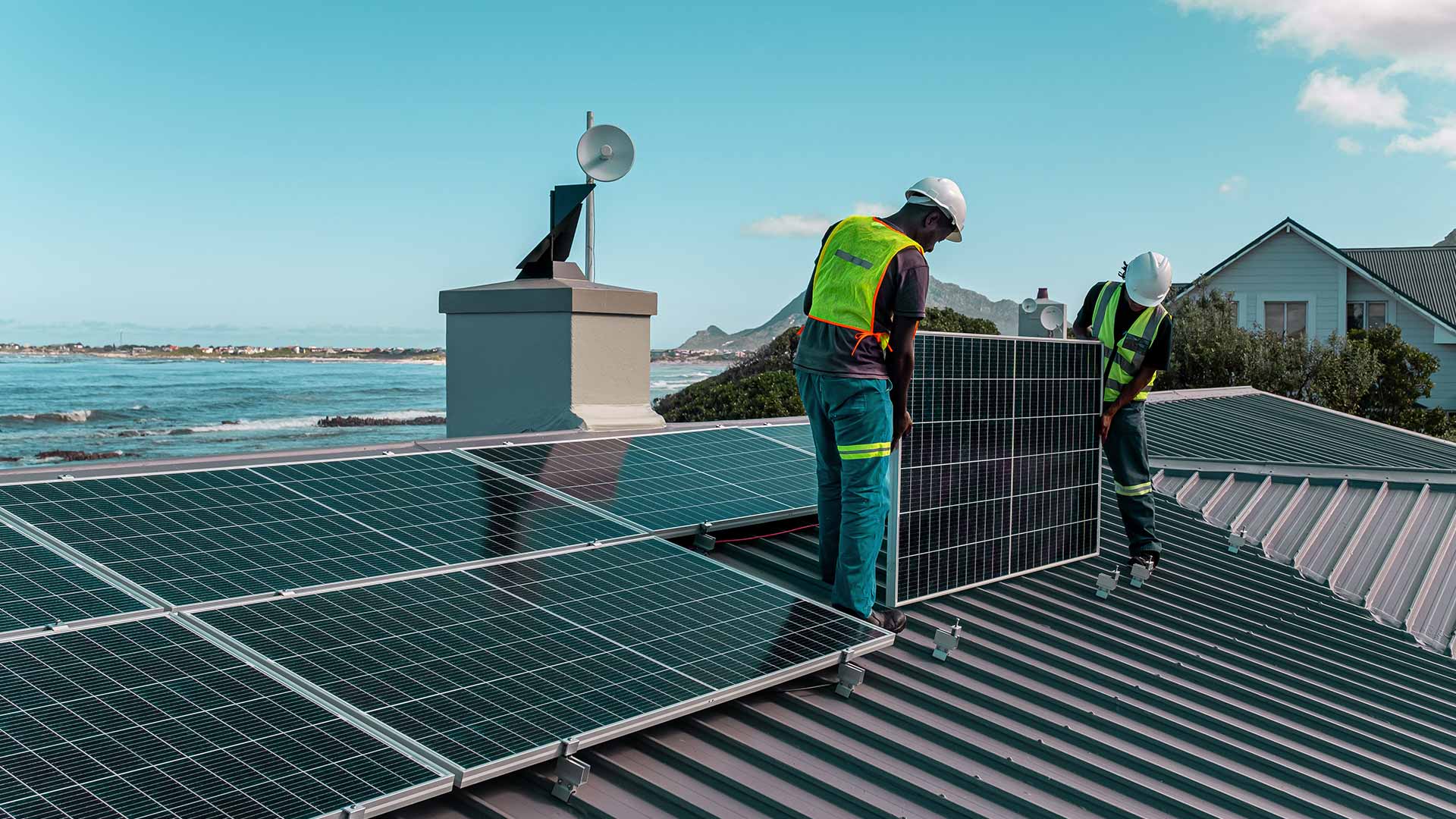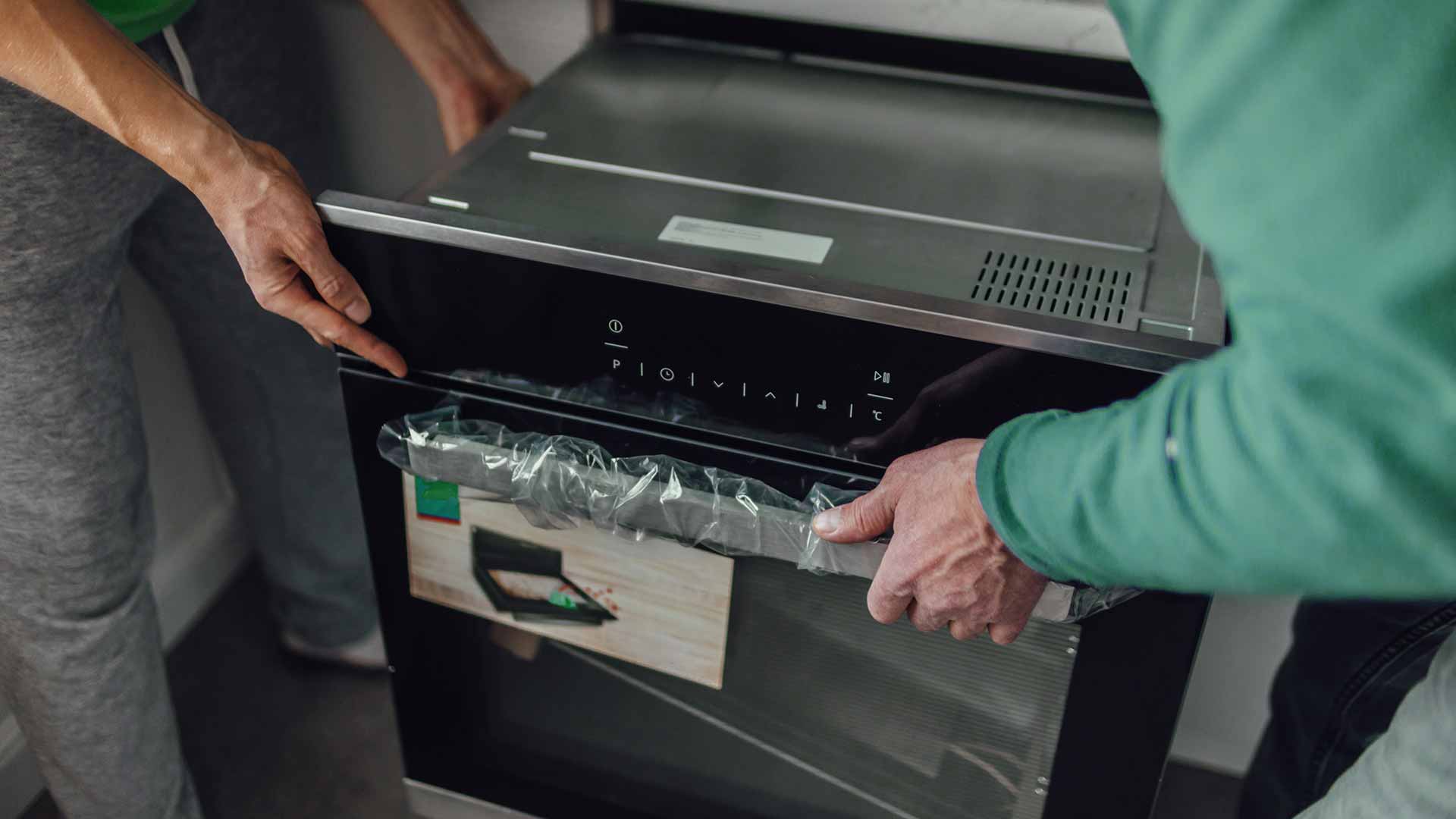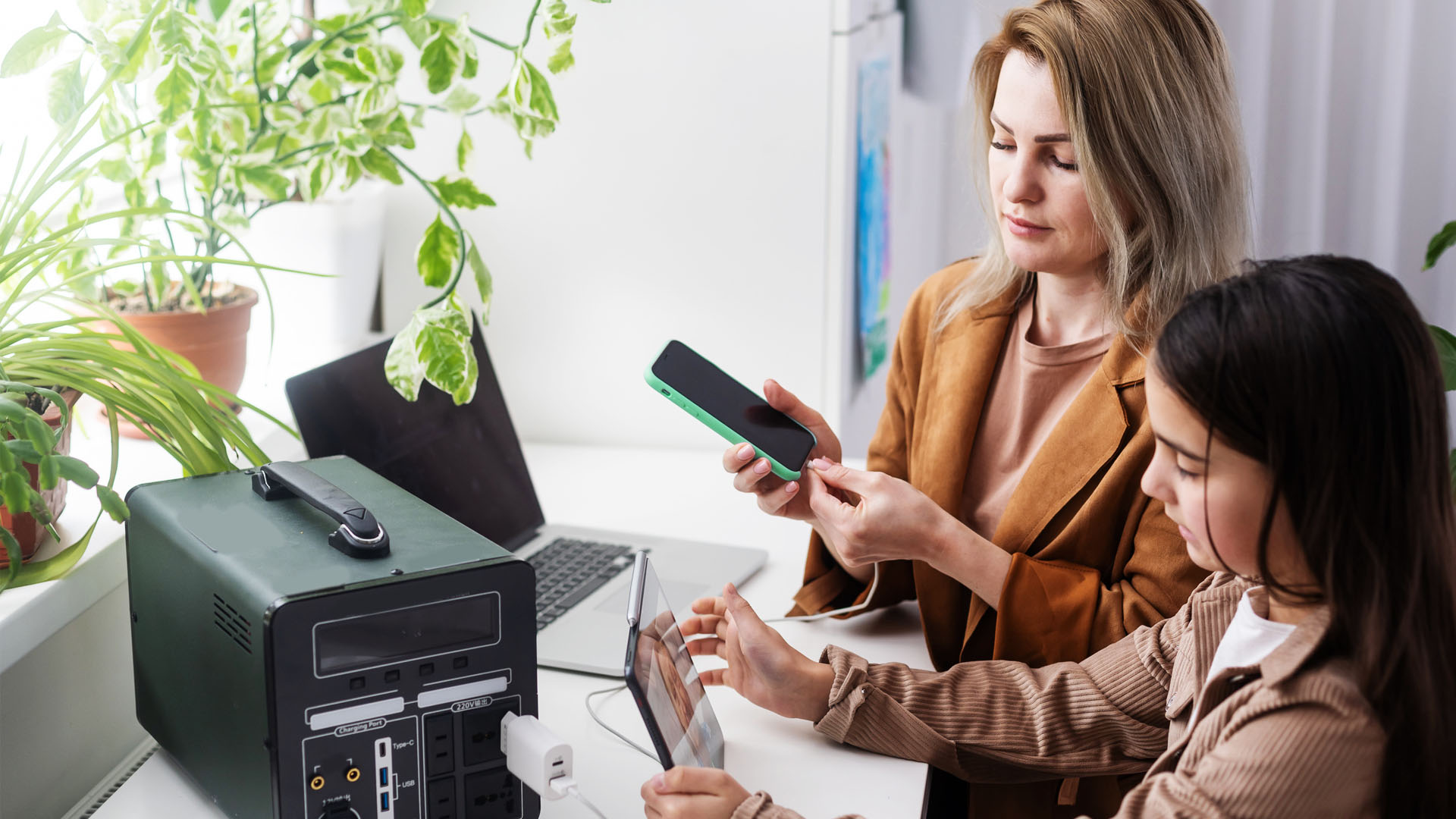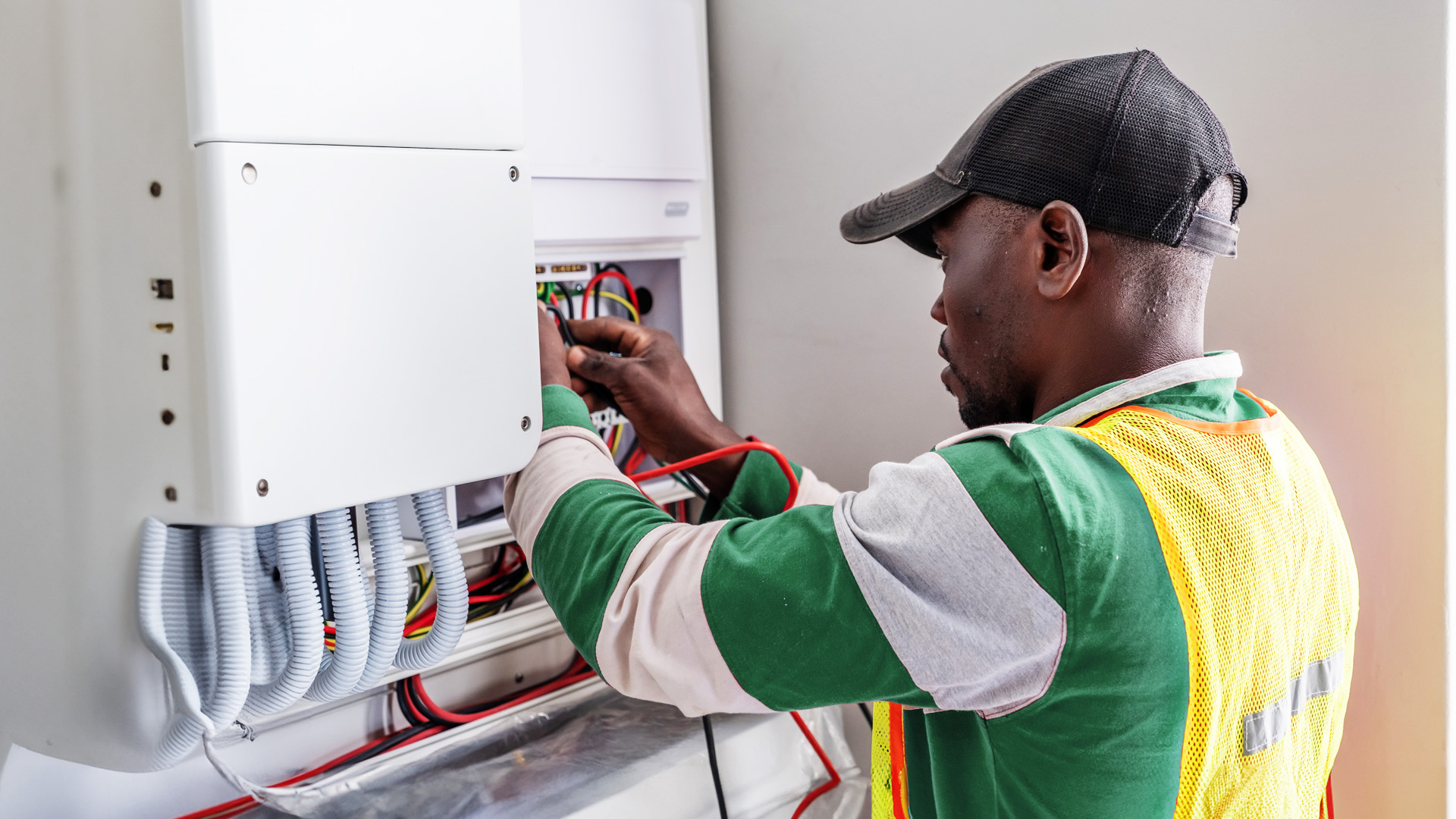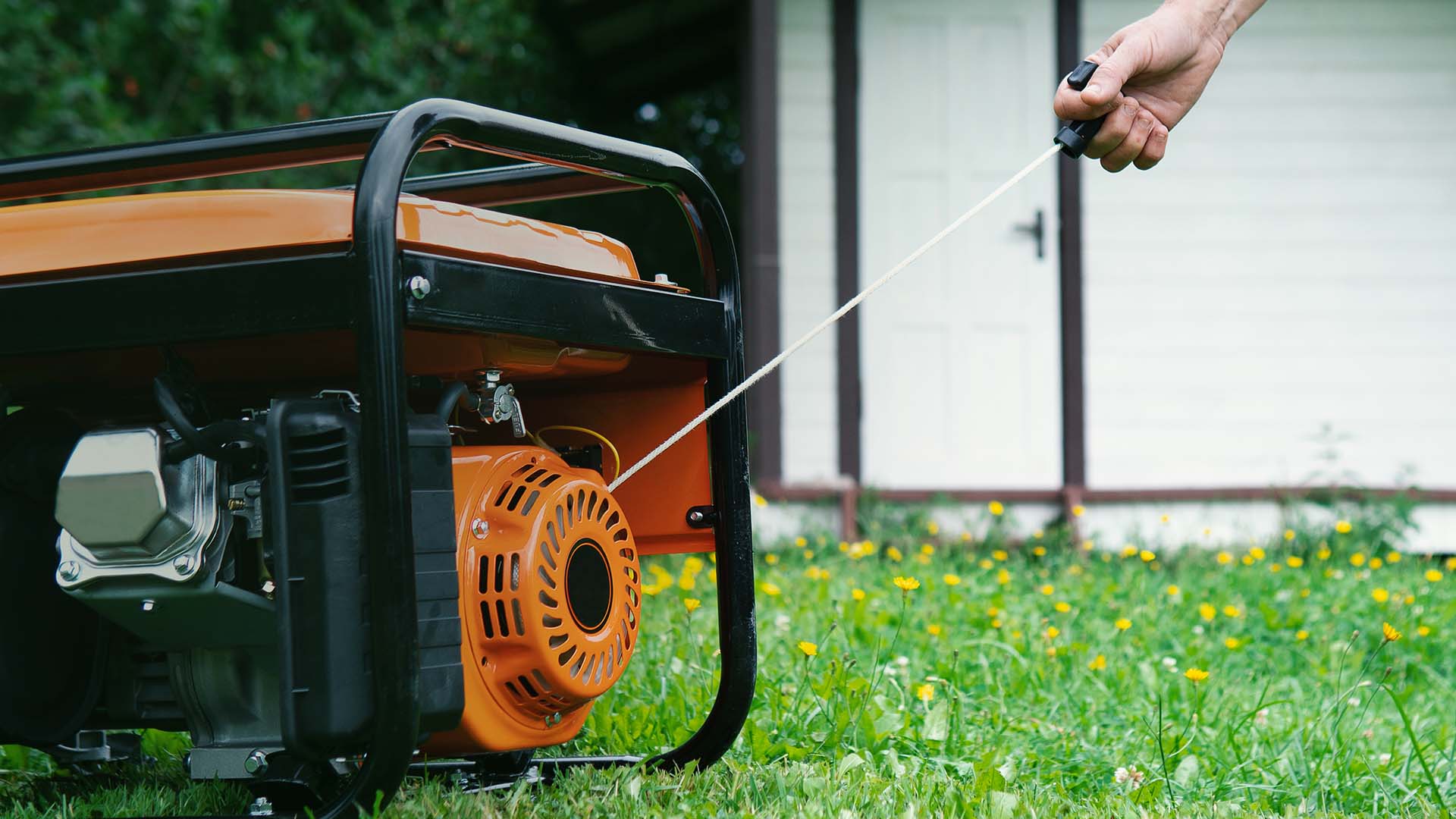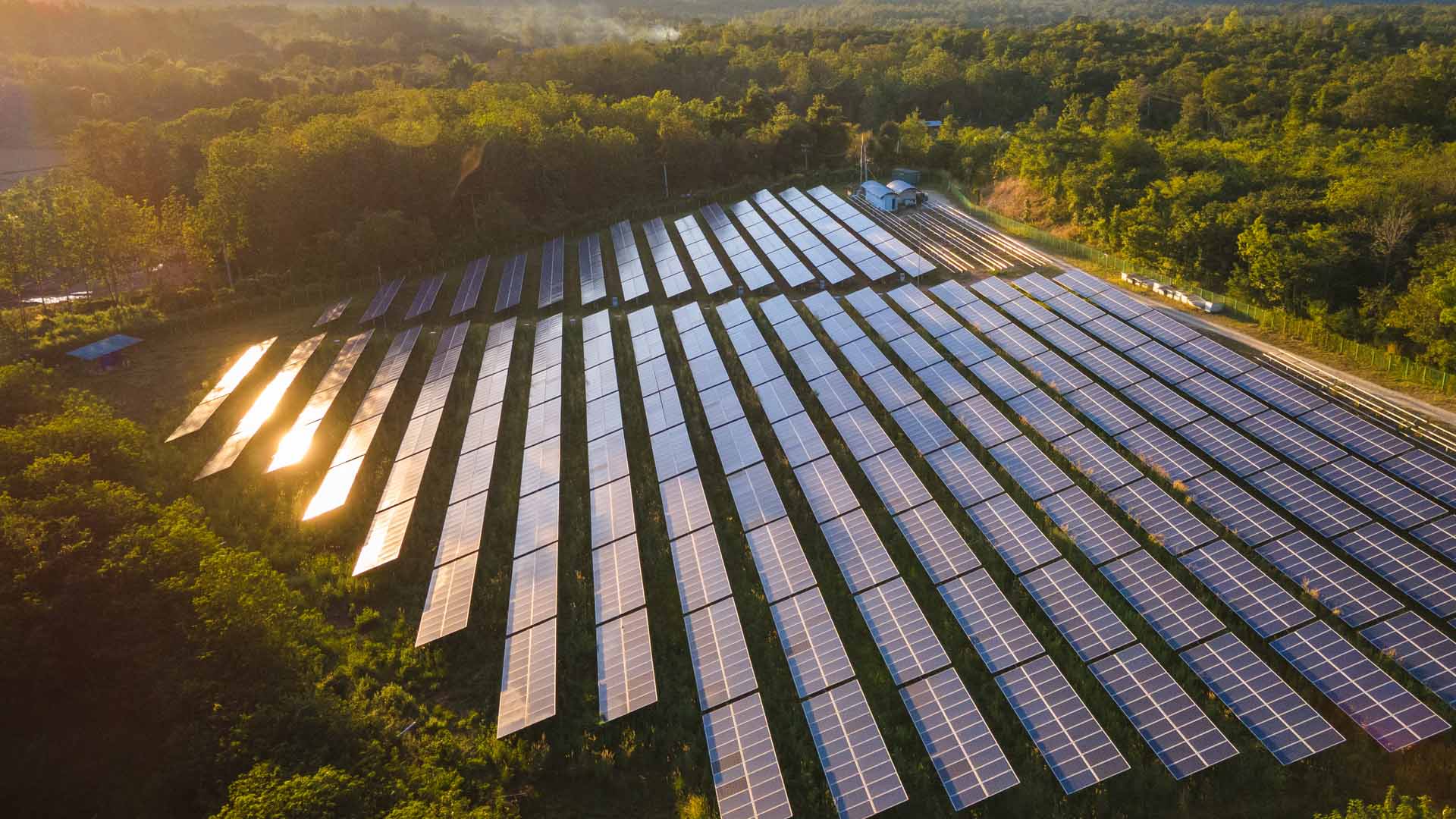Most South African homes need solutions to cope with load-shedding. The most popular choice is solar power, which provides stable, clean energy from the sun. But not everyone can put solar panels on their roof. It might be unaffordable in your current circumstances, or it might just be impractical – say, if you live in an apartment block or rented accommodation.
If you can’t install a solar-power system right now for whatever reason, you still need alternatives to cope with load-shedding. Luckily, there are some devices that can help on a smaller scale. They won’t power your whole house or flat and take you off the grid, but they will keep your essential devices and appliances running.
Depending on your power needs and budget, you could consider one of the following.
Which load-shedding solution’s best for you?
1. Battery and inverter system (portable power stations)
An inverter is a stand-alone electronic device that converts direct current (DC) into alternating current (AC), because the appliances in your home run on AC. It requires a DC power source, like batteries or solar panels, because it does not generate or store power. If you don’t have a solar installation, you’ll need an inverter connected to batteries that can produce enough peak power to run all the appliances you need, and you’ll have to recharge the batteries from the grid in between load-shedding interruptions.
You can buy a portable power station, which is an inverter paired with a battery. Expect to pay between R7,000 and R90,000 for a system, depending on the peak power you need.
2. Uninterruptible power supply (UPS)
A UPS, also called an uninterruptible power supply, is a battery backup system that keeps connected devices like computers, routers and lights running until the main power source is back on. It helps protect important communication, security, and leisure devices. A UPS is especially useful if you’re using sensitive digital devices, and it may be a better option in this case.
Not only does a UPS restore power much faster than an inverter when the grid fails, but it also protects devices from surges, voltage fluctuations and other line disturbances that can damage sensitive electronics. By continuing to supply electricity when load-shedding strikes, a UPS can save you the frustration of losing hours of unsaved work, or having important online meetings interrupted. Depending on the voltage and peak power that you need, UPS prices can be between R2,800 and R120,000.
Portable solar power kits have some advantages over rooftop solar installations
3. Generator
Generators – fuelled by diesel, petrol or gas – are now familiar load-shedding standbys in many homes, especially households with higher energy demands. They come in a variety of sizes, measured in peak power output and surge capacity (for appliances that require a lot of electricity to start, but much less to keep running).
You’ll need to choose a generator of the right size to deliver the power you need during load-shedding. Do you want to keep only selected lights and devices running, like your TV, laptop and wifi? Or do you want to power your whole house as usual, including fridges, airfryers and microwaves? A generator of that size might be out of your price range. Research your power needs and perhaps be prepared to compromise with an affordable option – for example, getting a generator that can power one electricity-hungry device at a time while keeping on lights and essential devices. Prices range from R2,500 to R50,000.
Generators have 3 major downsides, however: noise pollution, air pollution and running costs. You can cut down the noise by enclosing the generator in a purpose-built soundproof cover, provided you add a chimney to vent exhaust gases safely. In terms of expense, generators need to be serviced and maintained regularly to perform reliably, and the cost of diesel, petrol or gas mounts up quickly if you’re using your generator often. Rising fossil fuel prices could make a generator the least cost-effective option in the long term.
4. Power bank
Power banks are essentially very efficient rechargeable battery packs that can store a lot of power, so they’re a lifesaver when you need to charge your devices during blackouts. You can recharge your power bank from the grid or using solar energy, and use it to power small electronics like laptops, smart devices and LED lights. Prices range from around R300 to R4,500.
5. Portable solar power kit
Portable solar power kits range from simple systems combining a solar panel, a solar charge controller and a USB port that enable you to recharge digital devices with sunshine, to larger systems that integrate solar panels, batteries, an inverter and various plug sockets to deliver AC power to any appliance.
Portable solar power kits have some advantages over rooftop solar installations. Firstly, they’re portable, so you can use them wherever you need them – on the balcony of a flat, in your rented home, or even while camping – and take them with you if you move house. Secondly, you can move the panels to different locations throughout the day to catch direct sunlight, while installed panels need to be positioned carefully on your roof to get the most sunlight from a fixed location.
The cost will depend on the size of the portable solar power kit you need, but prices for home use range from around R4,000 to R45,000.
Nedbank is actively assisting South Africans who need alternative, sustainable solutions to load-shedding
If you want to safeguard the security of your home during load-shedding, invest in solar-powered lights and place them strategically around your property. These lights charge their batteries during the day when the sun shines, and then turn on automatically when it gets dark. So, you won’t pay for electricity to run them, and you’ll still be able to light up vulnerable areas of your property to deter intruders during grid blackouts. Prices at the top end of the scale can be as high as R12,000, but most cost between R2,000 and R4,000. There are several available for less than R1,000 – some cost as little as R200.
7. Energy-efficient appliances
Investing in appliances that use less electricity won’t prevent load-shedding but it will lower your electricity consumption so that you can go for a smaller, more affordable load-shedding solution. LED lights and appliances with high energy efficiency ratings use less power, so compare the listed energy efficiency of appliances and devices you have in your home to that of products currently on the market. If you can make savings on the electricity needed to run your home, you can buy a less powerful, more affordable backup energy system for grid blackouts and make further savings.
How Nedbank can help you with solar
As part of our commitment to the United Nations Sustainable Development Goals and our clients, Nedbank is actively assisting South Africans who need alternative, sustainable solutions to load-shedding. We offer various ways to finance home solar installations with approved service providers, but you need to assess your household energy needs and your budget carefully before you embark on what could be an expensive investment. If you’re not ready for that step, and you need help financing some of the smaller-scale devices mentioned in this blog, talk to one of our advisers about our personal loans, overdrafts or credit cards.
Disclaimer
Please note that all costs and financing options quoted in this blog were correct at the time of publication, but are subject to change without notice. Although we update the blogs regularly to keep the information up to date, clients are advised to check current costs and finance options with service providers before making any commitment to solar installation.
